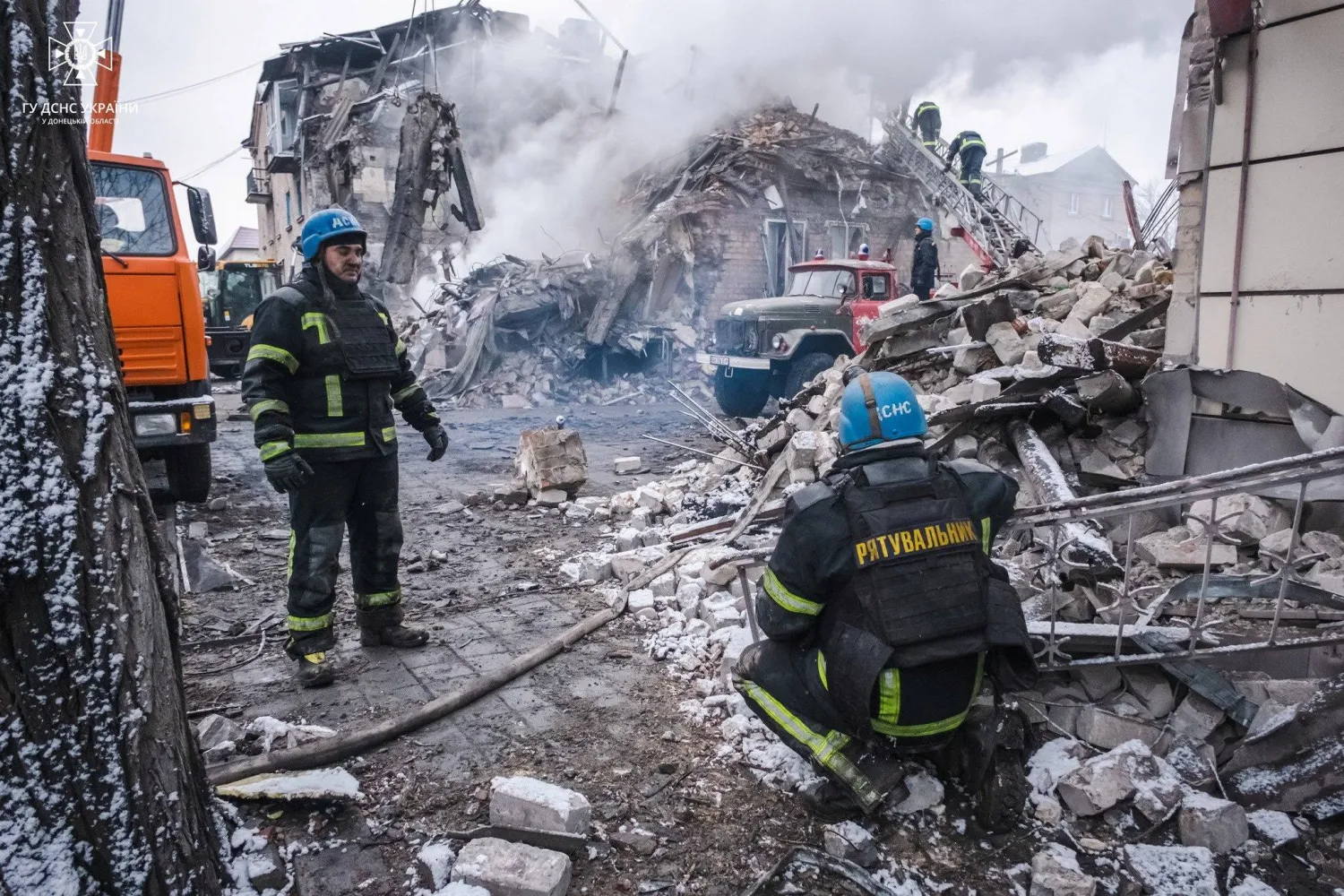The US has been working with Ukraine to prepare for Russia's expected winter attack, including helping to provide equipment and supplies to keep people from losing heat and electricity, said White House national security spokesman John Kirby.
Kirby said the US expects Russia will try to destroy Ukraine's critical energy infrastructure this winter.
US President Joe Biden asked Congress last month to approve $106 billion in national security funding, including aid for Ukraine as it battles the Russian invasion, support for Israel after the Oct. 7 attacks by Hamas and money for additional security at the US border with Mexico.
Russian missiles tore through apartment buildings in eastern Ukraine’s Donetsk region, local officials said Thursday, killing at least two people and burying families under rubble as the Kremlin’s forces continued to pound the fiercely contested area with long-range weapons.
Russian military units simultaneously launched six S-300 missiles toward the Donetsk region during the night, according to Ukrainian Internal Affairs Minister Ihor Klymenko. Another two were fired separately in the same area, the Ukrainian air force said.
The simultaneous missile strikes hit three Donetsk cities — Pokrovsk, Novohrodivka and Myrnohrad, Klymenko said. The cities lie 25-40 kilometers (15-25 miles) from the front line.
The battlefield has seen few major changes in recent months. A Ukrainian counteroffensive that started in June dented deep Russian defenses in some areas but has failed to change the complexion of the 22-month war.
Moscow has held firm in most of the areas it occupies while using the long-range weapons to inflict damage on Ukraine, including civilian areas.
Emergency workers pulled the body of a 62-year-old man from the wreckage of a destroyed multi-story building in Novohrodivka. Another death was reported in the same city by Ukraine’s Emergency Service. Four more people may be under the rubble, including a child, authorities said.
In Pokrovsk, the strikes destroyed a multi-story building, nine houses, a police office and cars. Emergency crews helped rescue a man with a 6-month-old baby, covered in blood, in his hands, officials said.
The head of the city administration, Serhii Dobriak, said it was fourth time Pokrovsk came under attack in the past month.
“They are striking the city center, the houses,” he said. “They are just destroying the civilian population.”
He urged people to evacuate because “the intensity of strikes is increasing.”
All three of the targeted cities are close to Avdiivka, a city where a fierce battle has taken place in recent months.
Avdiivka is a gateway to parts of the Donetsk region still under Ukrainian control.
Ukrainian officials said recently that Russian forces have ramped up attacks in eastern Ukraine in an attempt to gain ground near Avdiivka and around Bakhmut, another key front-line city.
In southern Ukraine, Russian forces shelled residential areas in the Kherson region, damaging critical infrastructure and a school, the office of Ukrainian President Volodymyr Zelenskyy said. One person was killed, the office said.
Ambulance paramedics came under fire in the village of Kindiika, where a doctor was wounded on Wednesday evening, according to the president's office. In Darivka, another Kherson region village, four people were injured as 10 houses, a hospital and a kindergarten were damaged during the night, the office said.
Zelenskyy on Thursday visited troops in Kupiansk, an area of fighting in the northeastern Kharkiv region.
“I know that every day you are losing your close people, your war buddies,” he told soldiers, according to a video posted on his Telegram channel. “You should know that everyone is aware that this is the highest price. That’s why I ask you to take care of yourselves.”
It was the Ukrainian leader's second straight day of touring battle areas across the country. On Wednesday he visited cities in southern Ukraine.
He has frequently made such visits during the war as he tries to keep up morale.









